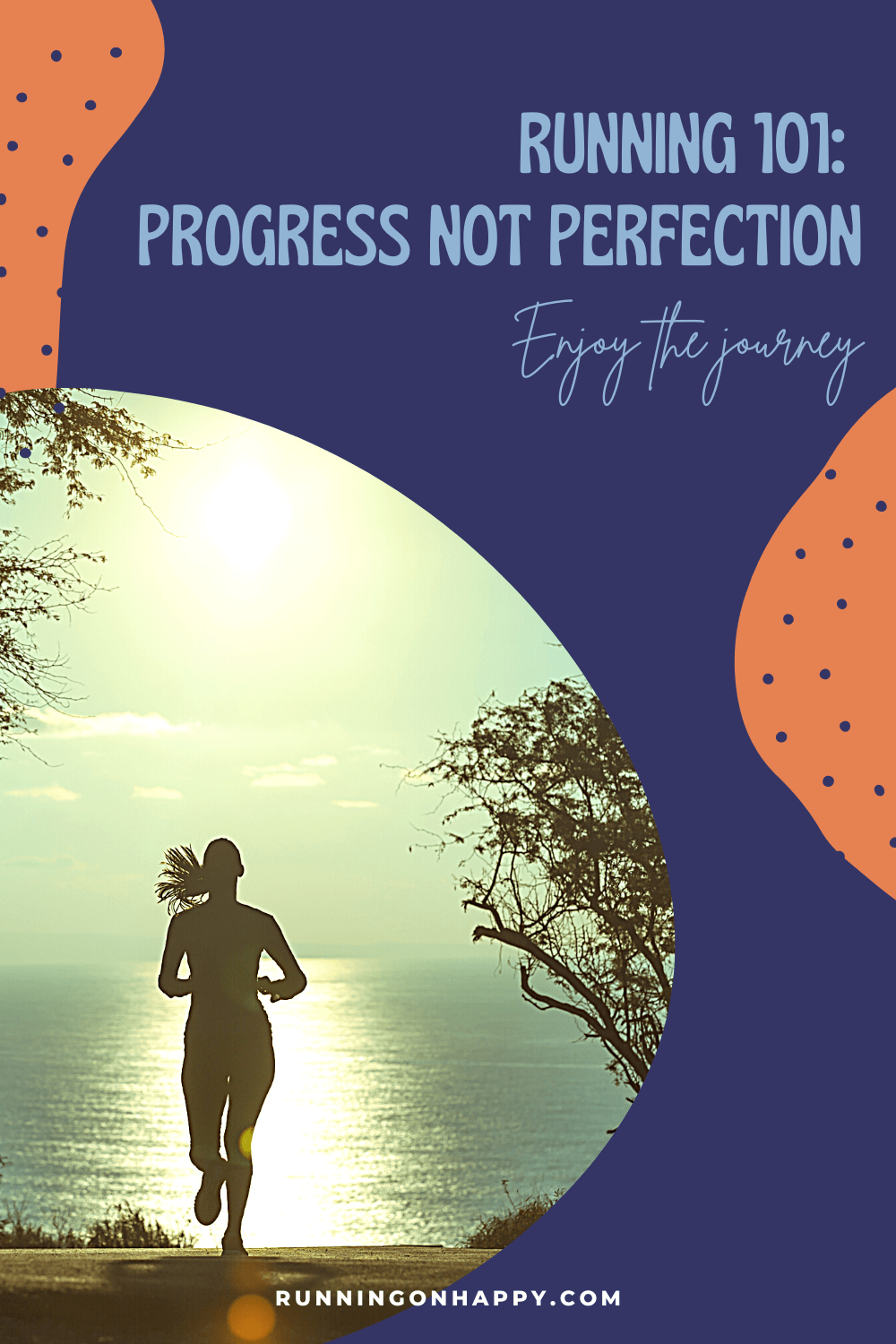Measuring progress, not perfection, is a key component to becoming a successful runner.

A sometimes difficult concept to master for a lot of runners is the idea of measuring progress and not perfection. It happens to the best of us — we wake up one morning and think to ourselves, “I’m going to start running today.” Or, “I think I’ll run really far today.” And sometimes maybe even “I’m going to get faster today.”
Those thoughts are all well and good, and the idea behind the goals is certainly admirable. Where the trouble comes in, though, is the classic runner’s folly of flawed thinking that faster — or farther — is always better.
I can assure you it is not. Particularly when it’s not defined within a long-term goal or training plan.
Running 101: Progress not Perfection | Enjoy the Journey
Running fast every time you run, or running farther than is necessary to achieve your goals, is the exact opposite of what most runners should be doing. Doing so can result in a multitude of issues no runner wants including burnout, exhaustion, overtraining, and even injury.
Most often, it’s the slower runs that benefit us the most. Do you remember the post when we talked about building a base? Those slow runs are the ones that build the foundation of all running for the duration of your training cycle. Slow isn’t just applicable to speed, either. Slowly building your mileage will benefit you tenfold rather than just winging it on a 20-mile run one day because you “feel good.”
But training is a slow process and it can be mentally draining to run training run after training run and not achieve the exact result you were aiming for. I get it completely. I’ll use a personal example. I recently ran 15+ miles. It was slow and cumbersome. And frankly, I really didn’t feel all that great. In the aftermath, I dealt with extremely sore calves and quads, which is a sensation I’ve not felt in at least a year.
I was disappointed with this run. Why? Because I was expecting it to feel much easier than it did, and I certainly had no intention of being sidelined with extreme muscle soreness for days after. I was expecting it to be, for lack of a better word, perfect. And it wasn’t.
Making Progress
Did I make the mistake of increasing mileage too quickly, or running too fast? In my case, no. I’ve been building my mileage slowly, and I certainly wasn’t fast. But it was my longest run of this calendar year. The route was also intensely hilly — much hillier than I run on a day-to-day basis. Looking back, it’s really no wonder I was sore for a few days afterward.
And despite my feeling not-so-amazing about the run itself, and experiencing intense soreness, in retrospect there was definite progress made during this run. I increased my miles and I got stronger by running a challenging route. Both wins in my book.

The moral of my anecdote? Part of the magic of running is learning how to adjust our expectations of ourselves and flip the script. We’re not going to nail every training run. Some days we’ll feel terrible and pray for the run to end quickly. Yet other days we’ll feel fast and free, and truly be able to run happy. The trick is to see the magic in all our runs — the mundane training runs, the hilly ones, the fast ones, the long runs… and yes, the races, too.
If you feel like you’ve gotten stuck in a rut of disappointment, I’ve got a few tips and tricks you can use to remember the magic in the progress.
How to enjoy the progress of your running journey:
- Find a running plan you think you can stick to and check off each run you complete.
- Repeat the mantra “progress not perfection” on days you’re struggling.
- Celebrate the days everything clicks and feels perfect!
- Keep a running journal to record how you felt, your pace, your mileage. Then, compare your runs from a couple weeks ago to see how much you’ve progressed.
- Work with a running coach you feel comfortable having candid conversations with to gauge how you’re doing and reflect on your progress and opportunities for growth.
It takes introspection, and some may argue many years of running as well, to truly measure a run or training cycle by progress instead of perfection. With some practice and guidance from family and friends, or a trusted coach, we can all find the peace of making progress with our athletic endeavors.
xo
Let’s talk!
Is measuring perfection a top priority for you?
If not, how did you figure out the best way to measure your progress?







